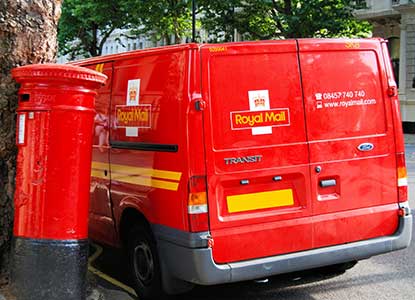Guardian source
“There’s no way we will sell Royal Mail ‘on the cheap,'” promised the government in its “myth-busters” factsheet. Yet this is precisely what it is doing; the valuation is believed by many experts to be on the embarrassingly low side. Experts from Panmure Gordon say that its lower value estimate of £2.6bn could be undervalued by up to £1.9bn pounds, or over 40%. Labour points out that the valuation does not seem to include up to £1bn of property assets – such as the Mount Pleasant or Nine Elms sites in London. Add to this that Royal Mail has an accumulated backlog of tax credits of about £2.8bn, which means that it is expected not to pay any tax for between five and 10 years. And here is the kicker – not only is this government selling the service significantly under any sensible valuation, it is retaining its biggest liability – pensions. Why wouldn’t there be frenzy for its undervalued, no-strings-attached shares?
“But anyone can buy shares,” point out the sale’s proponents. Indeed, provided that “anyone” has between £750 and £10,000 to spare and access to a broker or enough savvy to buy privately. Even then, one would be paying for a tiny amount of shares in something that we all jointly own already and end up not really owning it. The government itself forecasts that seven out of 10 shares will be bought “by big institutions in the City and overseas”. The apotheosis of the cockamamie logic surrounding the sale, is the idea that some of the City institutions set to make a killing may own our pensions. This, apparently, makes everything alright. The state is selling a valuable, profit-making asset, substantially below market value, in the vague hope that some of the corporate entities who buy it may happen to hold your pension.
“Look,” explained James Max on Sky News, “let’s get it off the balance sheet and reduce national debt,” echoing the sentiments of those in support. This is where the rationale of this fire sale really crumbles. Royal Mail is profitable. During the last financial year it showed an operating profit of over £400m. According to the government’s own literature, “the company is on the road to sustained profitability”. It is in a position to make a positive contribution to state coffers. Selling it does not decrease the budget deficit, it increases it.
…
